Calculating "scenarios" to adapt to new tax rates from the US market
Regarding the story of the reciprocal tax rate proposed by the US in recent days, although not yet officially applied, it has also created great concerns from businesses. From his perspective, Mr. Nguyen Van Dao, General Director of Go Dang Joint Stock Company (GODACO), in My Tho Industrial Park analyzed that the US's reciprocal tax rate for many countries in the world, including Vietnam, with a relatively high tax rate, will affect all businesses exporting to the US market, because the US market accounts for about 30% of Vietnam's goods export structure.
In fact, GODACO's recent exports to the US are insignificant because the company's main markets are Europe and Asian countries. The company also does not choose the US as its main market, so the imposition of reciprocal tariffs by the US does not greatly affect GODACO. However, it must also be said that, although there is no direct impact, the imposition of reciprocal tariffs by the US will certainly have an indirect impact. Because when this situation occurs, customers will look for new markets, leading to long-term impacts on supply and demand; not to mention the currency market, labor, processing, and transportation can all be affected.
 |
| GODACO production line. |
| Speaking at the conference to review the direction and management of socio-economic development in the first quarter and deploy tasks for the second quarter of 2025 on the morning of April 8, regarding the US imposing a 46% reciprocal tax on imported goods from Vietnam, Chairman of Tien Giang Provincial People's Committee Nguyen Van Vinh requested the Department of Industry and Trade to preside over and coordinate with departments and branches to advise the Provincial People's Committee to hold a meeting with export enterprises in the province, especially enterprises with goods exported to the US. The Department of Industry and Trade closely monitors the situation, grasps information, difficulties and problems of affected enterprises, and proposes solutions for the Provincial People's Committee to support enterprises. |
The US is currently a major export market for Vietnam, with the proposed reciprocal tax rate, it is forecasted to seriously affect the production and business situation of enterprises. Therefore, each enterprise needs to have an assessment of the uncertain factors of the market, not just the US. The best way for each enterprise is to diversify products and markets, and minimize production costs to increase product competitiveness. Because today the US may impose reciprocal taxes, who knows, in the future another market may impose new barriers related to tariffs, trade, technology, etc. These factors can besiege export enterprises.
Therefore, businesses need to determine their mindset to prepare to adapt to these barriers. In particular, businesses need to prepare resources, including exploiting the domestic consumption market with about 100 million people. "The latest point is that this morning the application of the US reciprocal tax rate was extended for another 90 days. This is also an important time, with the Government's efforts, the negotiation on this reciprocal tax rate promises to bring positive results" - Mr. Dao further analyzed.
Looking at the overall picture of factors affecting the export situation in general, and to the US market in particular, Director of the Department of Industry and Trade of Tien Giang province Luu Van Phi said that, through consultation, the Department of Industry and Trade of Tien Giang province found that there are two major factors affecting export goods in the province. One is the domestic factor. In which, the first prominent is the state's policies and laws related to taxes, land rents, administrative procedures, capital support policies, trade promotion, etc. Recently, the Government has seen this situation and has applied a policy of extending the time for paying taxes and land rents. Regarding the tax rate proposed by the US, the Government has also sent a delegation to negotiate with the US Government on the imposition of reciprocal taxes. The second is the production capacity of enterprises related to labor, technology, product quality, and brand. The third is the issue related to traffic infrastructure, electricity, water, warehouses, and logistics. The fourth is the exchange rate. The fifth is the cost of production.
Thus, there are 5 domestic factors affecting enterprises. Based on these factors, there are contents related to the Government's macroeconomic policies; there are contents related to local authorities. Therefore, in this difficult context, each department and sector based on its assigned functions and tasks needs to actively support enterprises. Based on domestic factors, departments and sectors support export enterprises to overcome this difficult period.
 |
| Each business needs to "recalibrate" its export market. |
According to comrade Luu Van Phi, on the international level, there are main factors affecting businesses. One is market demand. Therefore, in the medium and long term, businesses must be encouraged to diversify their markets. For example, recently the market had an export turnover of 3,000 billion USD, but our businesses have very limited access. That is the Halal market and the Gulf countries. Therefore, in the near future, the province needs to strengthen trade promotion to learn about market information, connect with business associations of other countries, and from there make long-term plans. Because if we do not organize delegations, but businesses do it themselves, it will be very difficult. The second is trade barriers. This factor requires support from the Central Government, but cannot be implemented locally, because it is related to trade relations between the two countries.
On the other hand, enterprises must “upgrade” themselves. With such requirements set by countries, enterprises must ensure that their production meets the criteria of importing countries. The State cannot do it for enterprises. Third, the free trade agreements that our country has signed with other countries. Enterprises and localities must optimize the advantages of these agreements. On the side of the Department of Industry and Trade of Tien Giang province, it will coordinate with the Ministry of Industry and Trade and representative agencies of countries to promptly inform about the policies of other countries and technical barriers according to each application period. Finally, there are political and environmental fluctuations in other countries.
“The Department of Industry and Trade of Tien Giang province will coordinate with the Ministry of Industry and Trade to provide timely information and forecasts so that businesses can calculate production and have appropriate export strategies. More than anyone else, businesses must change themselves to gradually focus on quality, not quantity,” added comrade Luu Van Phi.
In fact, if analyzed carefully, the US's introduction of reciprocal tariffs for many countries, including Vietnam, is considered an important milestone. Although it is predicted that the reciprocal tariffs proposed by the US when officially applied will have a major impact on businesses exporting to this market. However, this is also an opportunity for businesses to "recalibrate" the export market in a more sustainable direction.
AT - TA
Source: https://baoapbac.vn/kinh-te/202504/can-chinh-thi-truong-xuat-khau-1039387/


![[Photo] General Secretary To Lam holds talks with General Secretary and President of China Xi Jinping](https://vstatic.vietnam.vn/vietnam/resource/IMAGE/2025/4/14/b3d07714dc6b4831833b48e0385d75c1)
![[Photo] Prime Minister Pham Minh Chinh chairs conference to review the implementation of Resolution No. 18-NQ/TW](https://vstatic.vietnam.vn/vietnam/resource/IMAGE/2025/4/14/dcdb99e706e9448fb3fe81fec9cde410)

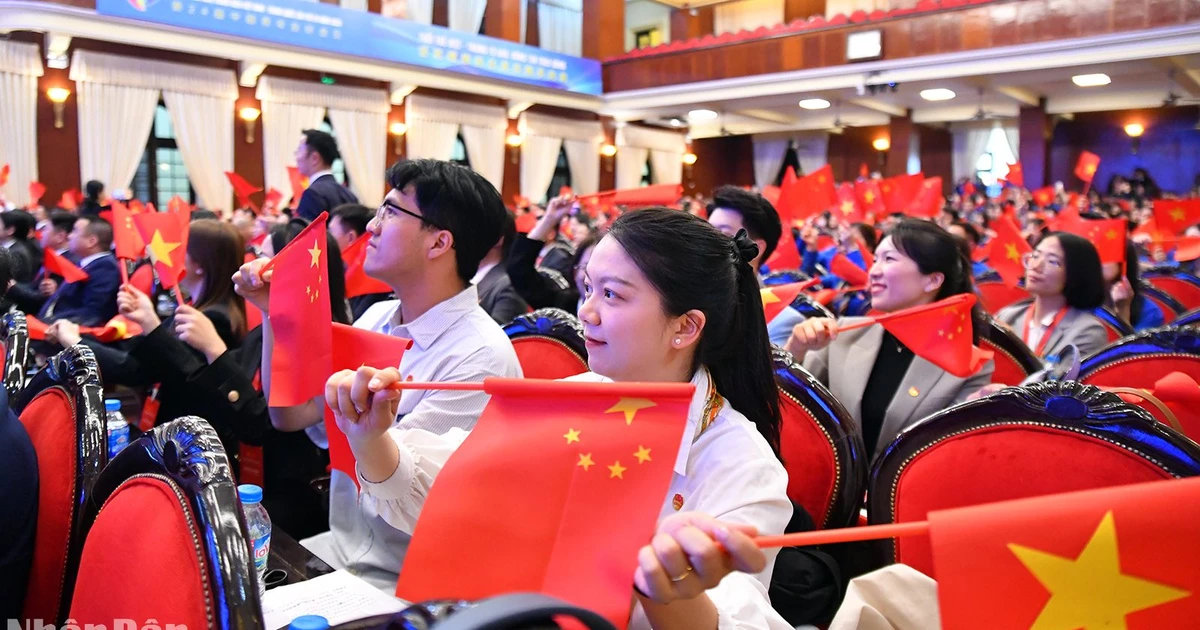
![[Photo] Ceremony to welcome General Secretary and President of China Xi Jinping on State visit to Vietnam](https://vstatic.vietnam.vn/vietnam/resource/IMAGE/2025/4/14/5318f8c5aa8540d28a5a65b0a1f70959)
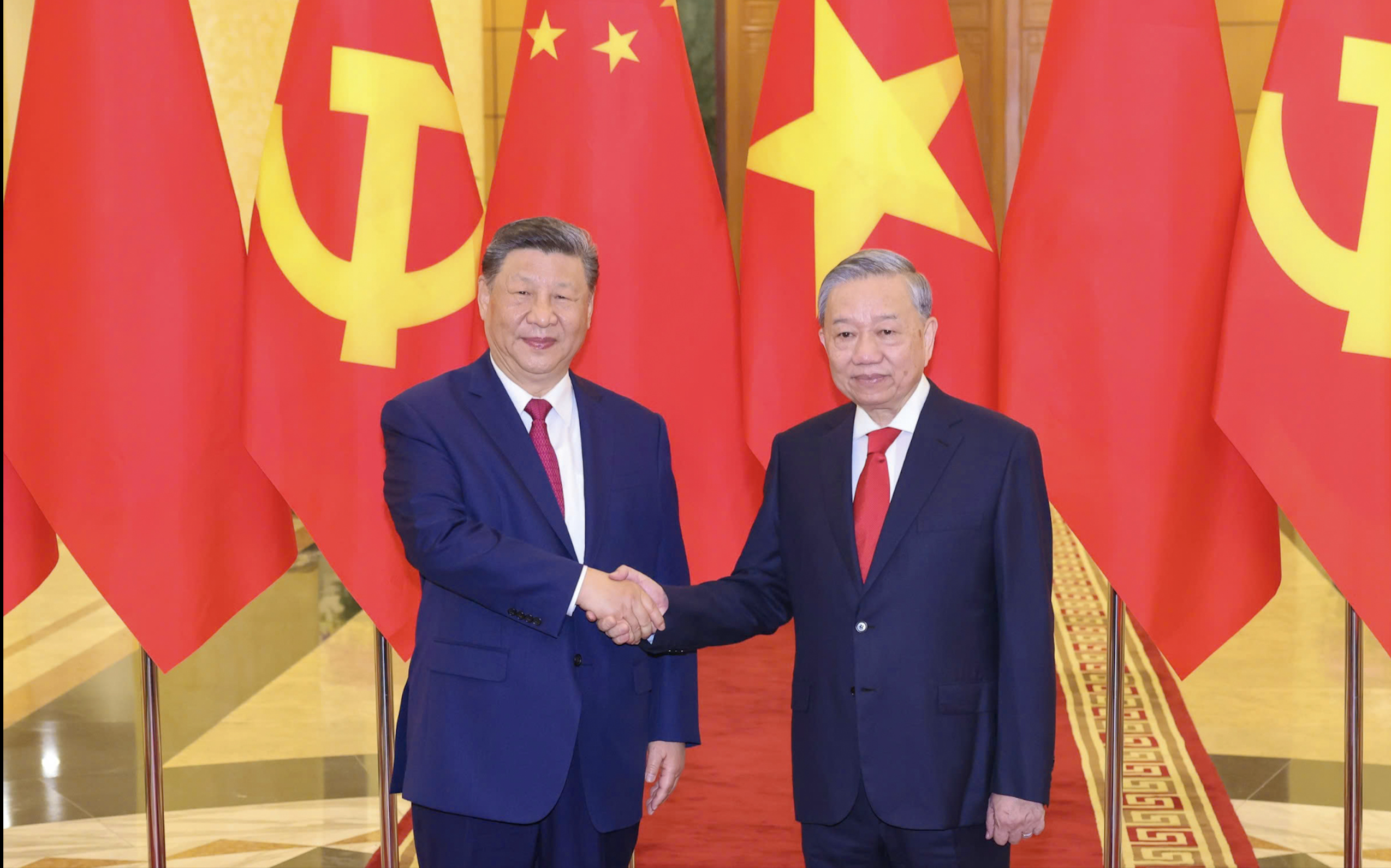

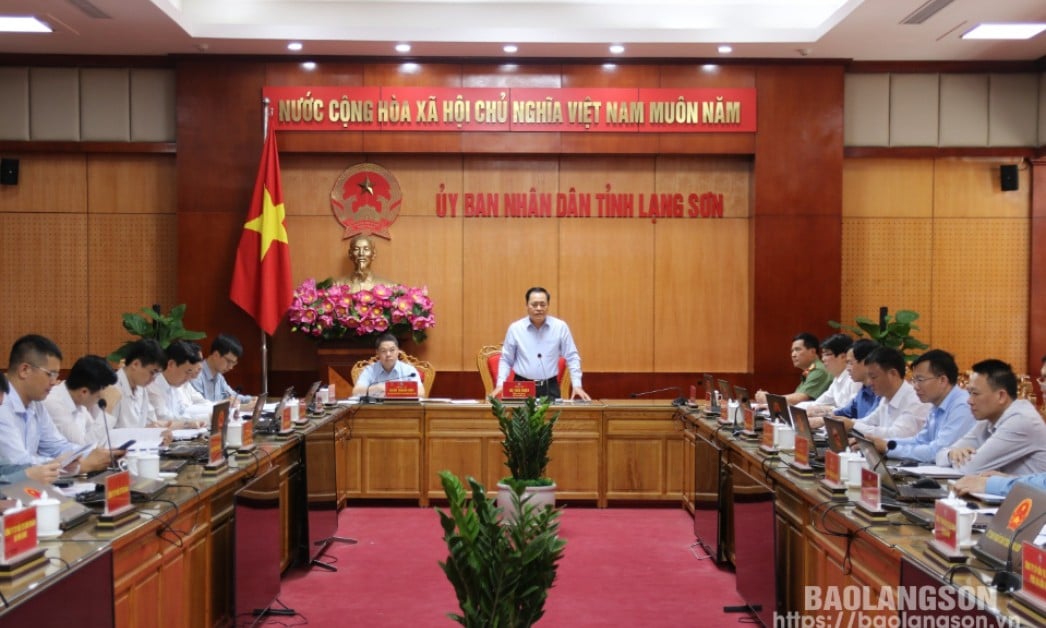










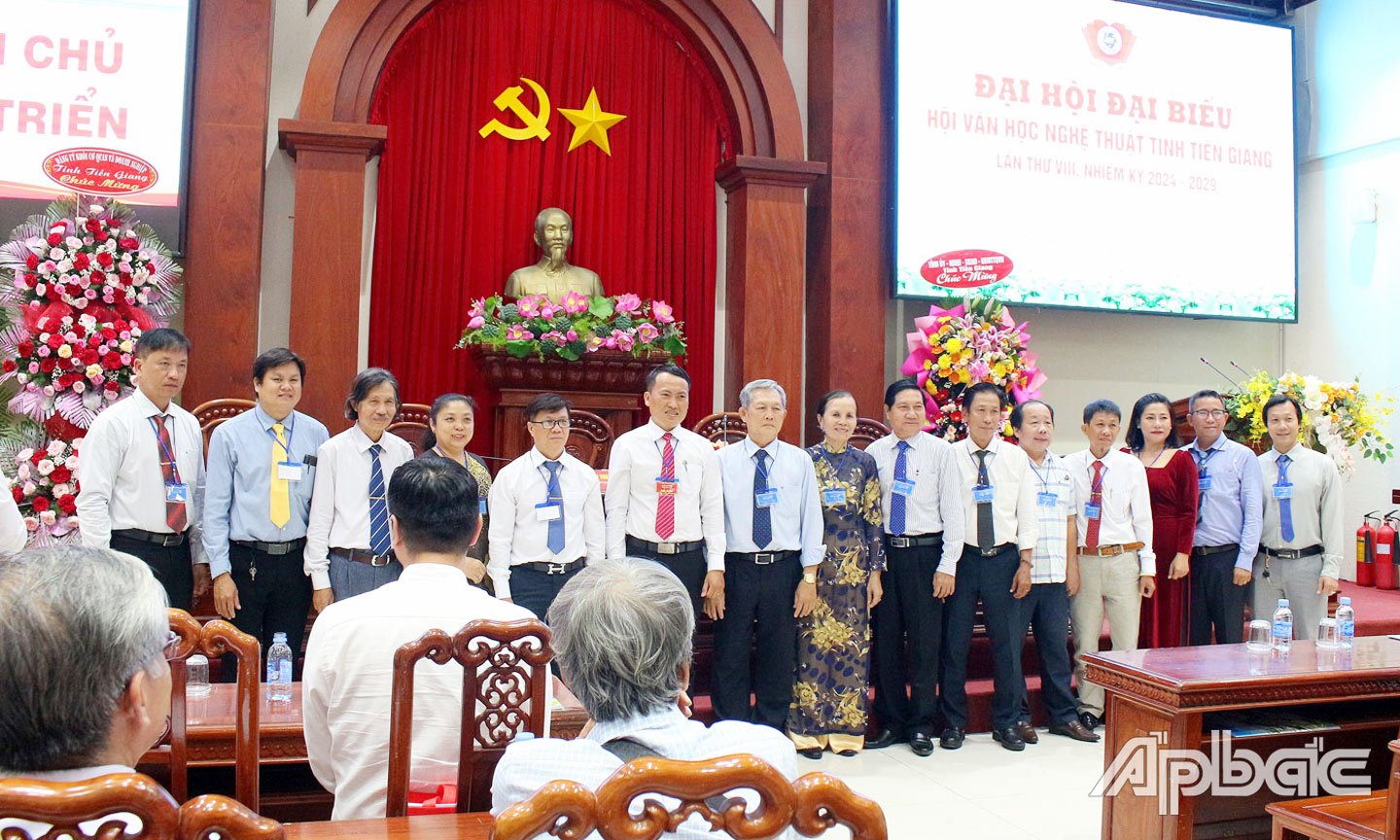






































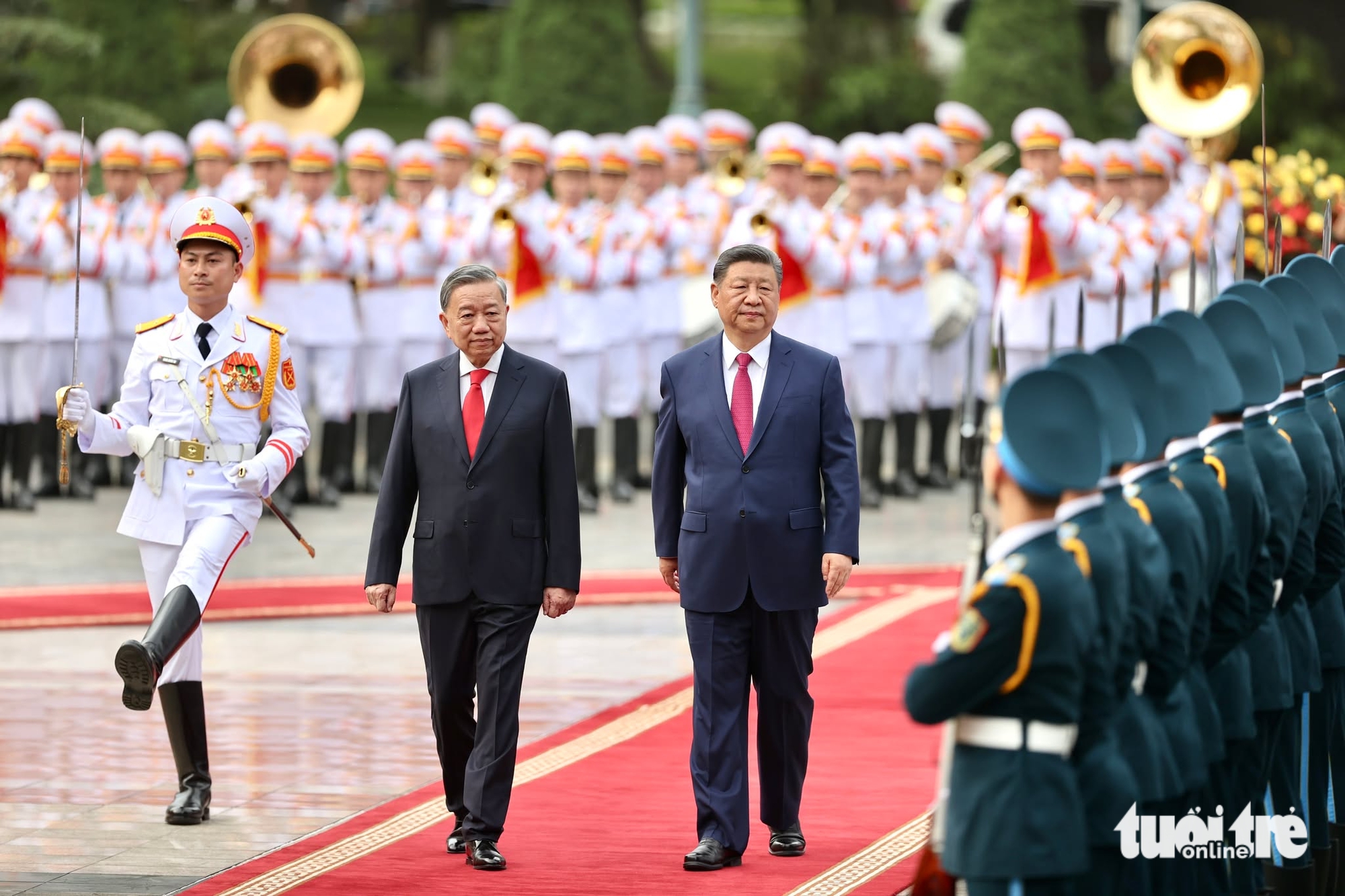





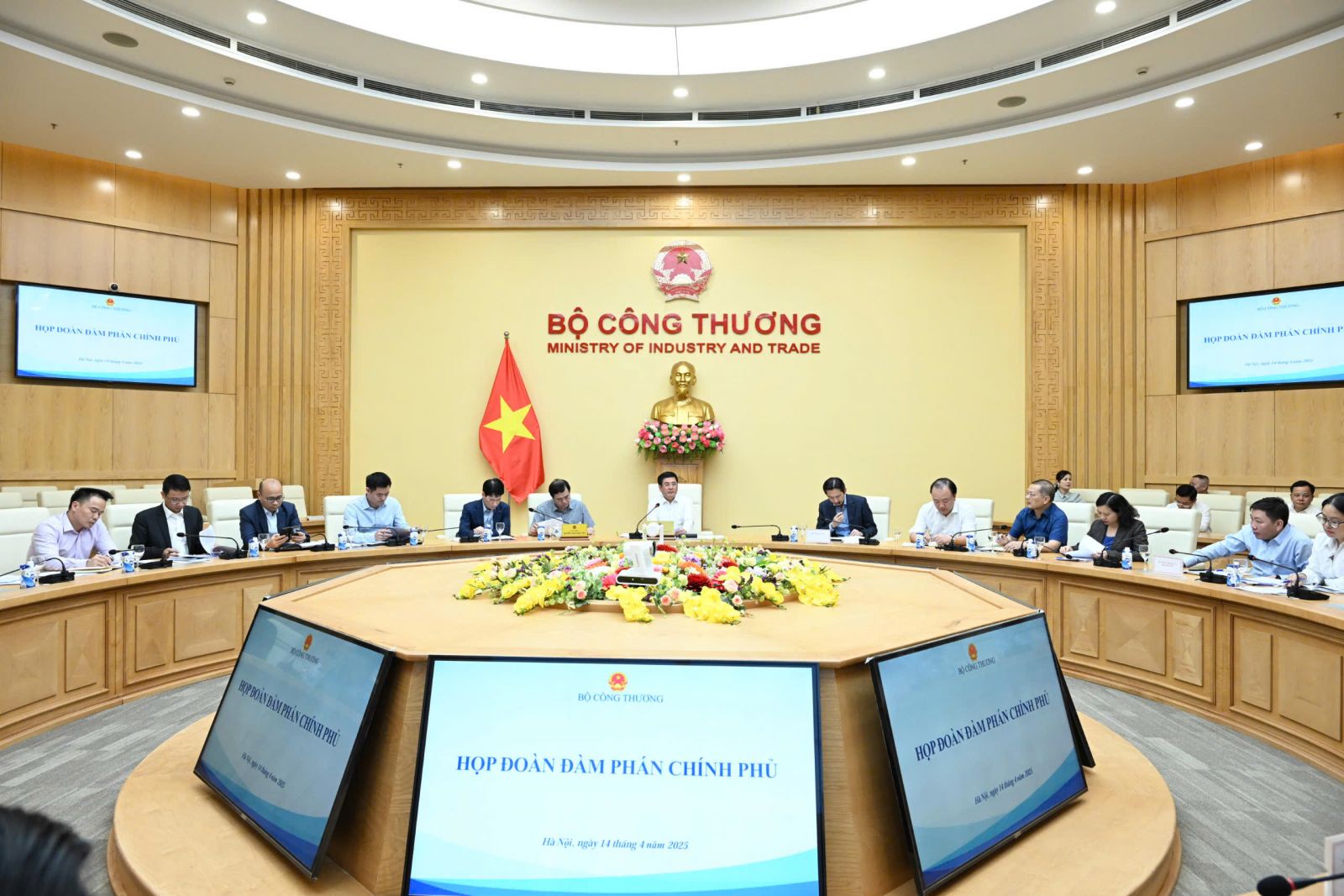

























Comment (0)